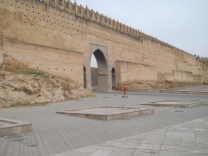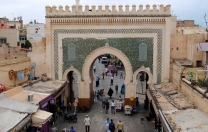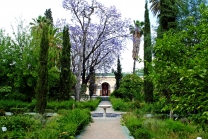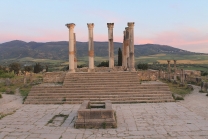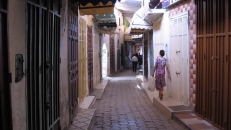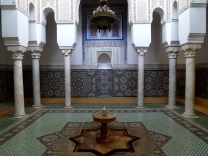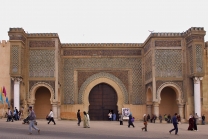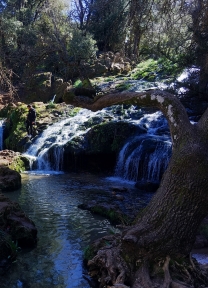No video yet

Funduq al-Najjariyyin
Funduq al-Najjariyyin (Arabic: فندق النجارين, lit. 'Inn of the carpenters') (also spelled Fondouk (el-)Nejjarine) is a funduq (or khan, a traditional inn) in Fes el Bali, the old medina quarter in the city of Fez, Morocco. The funduq is situated in the heart of the medina, at Al-Najjariyyin square, which is also notable for the Nejjarine Fountain, an attached saqayya or traditional fountain for caravans. The building was designed for use by the merchants, traders, and visitors to the city of Fez and provided a storage place. It is a prominent example of Moroccan riad architecture. Today it houses a private museum, Le Musée Nejjarine des Arts et Métiers du Bois (Nejjarine Museum of Wooden Arts & Crafts).
Description
The funduq was commissioned by the Alaouite Sultan Ismail Ibn Sharif in the 17th century, and its attached saqayya was commissioned by the Sultan Abd al-Rahman in the 19th century. Despite these developments from different dates, the various structures and the public square form an integrated whole in the local community. The building is built on an almost symmetrical rectangular plan. The interior is accessed through a monumental entrance leading to the lobby and the central courtyard or sahn. This gate, 5 meters tall and 3 meters wide, is framed by a facade of rich floral and geometrical decorations and inscriptions in stucco and tilework, and overlooked by an impressive carved cedar-wood canopy. The courtyard inside is rectangular and surrounded by a three-story gallery on all sides giving access to many different rooms. Rooms for the guests were located on the upper floors. At the beginning of the 20th century, the funduq was used as a police station by the French colonial authority. The building was restored between 1990 and 1996, and in 1998 it was turned into a private museum for wood arts and crafts known as Le Musée Nejjarine...





